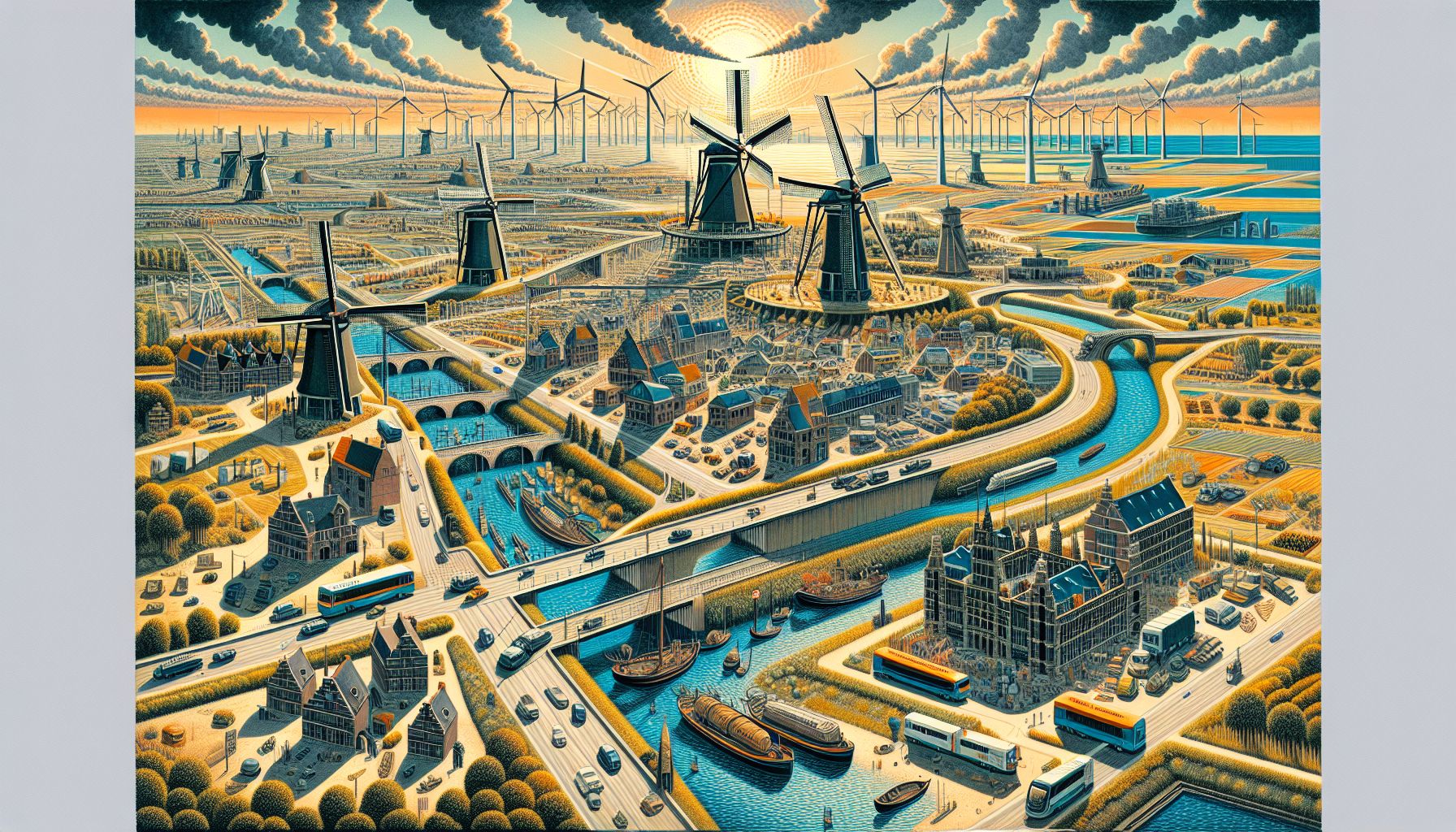Dutch infrastructure at risk without billions in investment, authorities warn

The Netherlands faces infrastructure deterioration that may affect national prosperity without an annual 2-3 billion euro investment.
Crucial Mobility Investments
Dutch municipalities, provinces, and mobility sector leaders are sounding the alarm on the urgent need for additional funding to maintain and enhance the Netherlands’ transportation networks. An extra 2 to 3 billion euros per year is deemed necessary to prevent the infrastructure from crumbling, which could severely impede the nation’s movement of goods and people, with significant consequences for economic stability and growth. The warning, issued on Wednesday and reported by the Telegraaf, emphasizes that the current budget is insufficient to keep the roads, railways, and waterways at an acceptable standard[1].
Averting a Transportation Crisis
The concerns stem from the potential fate of critical structures such as the Zeeland bridge, which connects Goes and Zierikzee. Deputy Harry van der Maas highlighted the bridge as an example of infrastructure not built to withstand the current traffic demands, both in volume and weight. The prospect of extended closures due to inadequate maintenance could spell disaster, similar to historical issues faced by the Merwede Bridge and other notable structures. These examples underscore the importance of immediate and sustained investment[1].
The Socioeconomic Impact
The call to action from the Interprovincial Consultation (IPO), the Association of Dutch Municipalities (VNG), and the Mobility Alliance is not just about preventing physical decay; it’s about preserving the social and economic fabric of Dutch society. Mobility is intertwined with access to work, healthcare, and recreational activities. Any compromise in the transportation network can have far-reaching effects on residents’ quality of life and the overall business climate in the Netherlands[1].
Green Innovation Initiatives
In response to the looming infrastructure challenges, Rijkswaterstaat, an executive agency of the Dutch Ministry of Infrastructure and Water Management, is actively pursuing innovative projects. Among these is the Fish Migration River project, which aims to mitigate the negative impacts on fish populations by the construction of the Afsluitdijk, and the MANABAS COAST project, which incorporates Nature-based Solutions for Flood and Coastal Erosion Risk Management. These efforts are imperative for the country’s climate adaptation and resilience against rising sea levels and extreme weather events. Rijkswaterstaat’s initiatives are not only about immediate repairs but also about long-term sustainable development and international collaboration to enhance safety, mobility, and quality of life[2].
Global Collaboration for Sustainable Progress
Rijkswaterstaat’s approach to infrastructure extends beyond national borders. Recognizing the global nature of climate challenges, the agency is investing in international partnerships to drive sustainable progress. Their active participation in conferences like Procura+ facilitates the exchange of knowledge and strategies to tackle issues such as extreme water levels and drought. These collaborations are crucial as the Netherlands seeks to implement forward-thinking, eco-friendly solutions to safeguard its infrastructure and residents against the effects of climate change[2].

